Battery Backup: Emergency Power Solutions for Diagnostic Labs
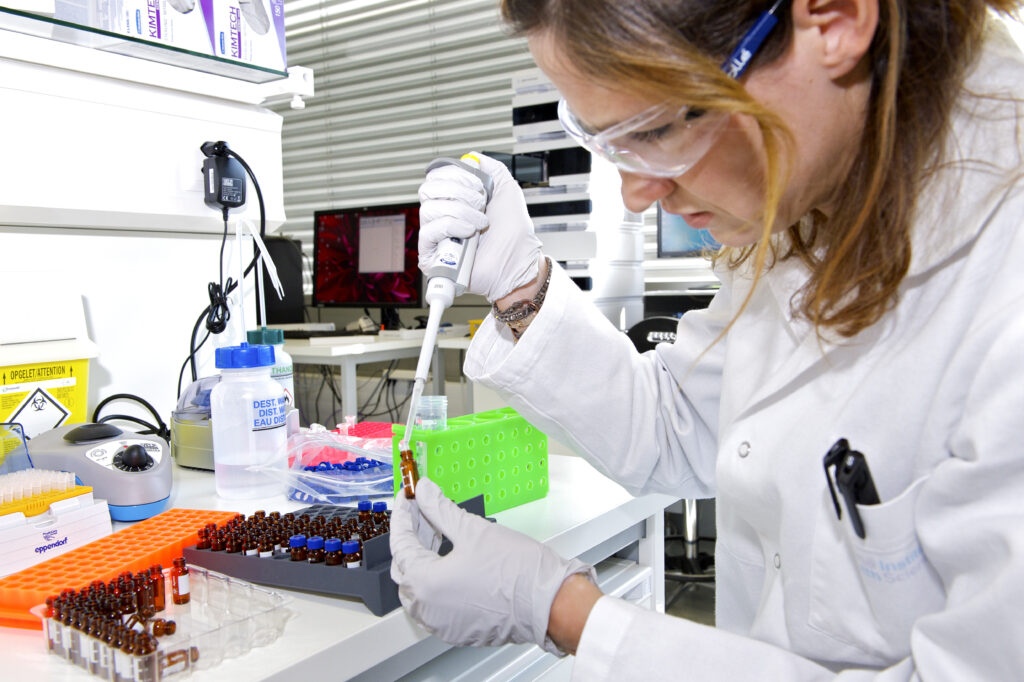
The Essential Role of Battery Backup Power in Modern Diagnostic Laboratories
In the modern world, electronic instruments have become a vital component of diagnostic laboratories. These workstations, such as computers, microscopes, and other workstations, are essential for the quick and efficient processing and analysis of samples. However, they are also highly dependent on a reliable source of power to ensure the laboratory operations run smoothly.
Battery backup support systems, also known as uninterruptible power supplies (UPS), work by providing temporary battery backup to laboratory equipment, even during extreme weather events. These resources act as a bridge between the primary power source and the laboratory equipment, ensuring that there is no disruption to the power supply. In case of a power failure, the UPS system provides power to keep the laboratory setup operational until the primary power source is restored.
With backup battery support, diagnostic laboratories can continue their operations without experiencing any disruption or delay, ensuring that patients receive accurate and timely test results. It’s essential to choose the right UPS framework for your laboratory, taking into account the size of the laboratory, the number of devices that require battery backup, and the required runtime during a electricity outage. Regular maintenance of the UPS system is also necessary to ensure that it remains in good working condition and is ready to provide secondary power when needed.
What is Backup Battery Support?
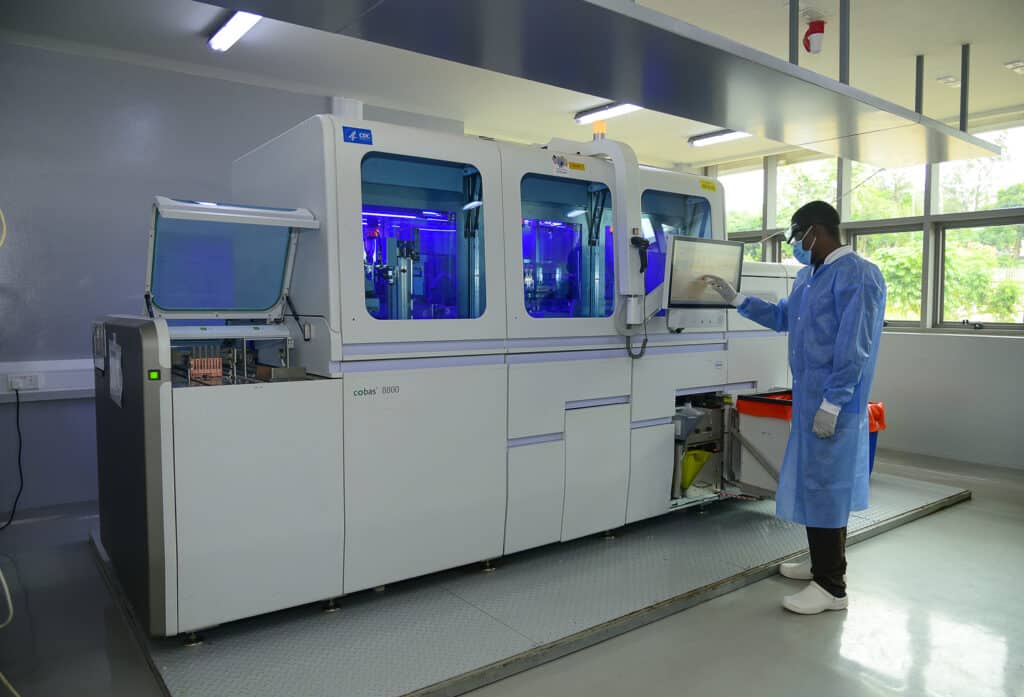
Battery backup support, also known as an uninterruptible power supply (UPS), is a device that ensures uninterrupted power supply to electronic systems in case of a power cut or other disruption to the main power supply. In diagnostic laboratories, a UPS provides critical battery backup to laboratory equipment, including computers, microscopes, centrifuges, and other devices that require a constant source of power to function correctly.
So, how do battery backup systems work?

A UPS battery backup archictecture works by supplying power to laboratory equipment from its internal batteries. These batteries are continuously charged when the primary power source is available. When there is a power loss or other emergency, the UPS system immediately switches to battery power, ensuring that laboratory equipment remains operational without any disruption.
Why is battery backup important?

In diagnostic laboratories, uptime is critical to deliver accurate and timely results. Grid failures and brownouts can lead to equipment failure, data loss, and delays in test results. A UPS system provides a reliable battery backup source to prevent these issues and ensure that critical laboratory tools remains powered up. The network also prevents damage to laboratory equipment caused by sudden power loss or voltage spikes.
A UPS system provides a reliable battery backup source for diagnostic laboratories. It ensures uptime, accuracy, and timely delivery of test results by preventing delays and damage caused by power outages and other power-related disruptions. By selecting the right UPS network and maintaining it regularly, diagnostic laboratories can ensure that their operations remain uninterrupted and patients receive accurate and timely test results.
Why is battery backup support important for Diagnostic Laboratories?
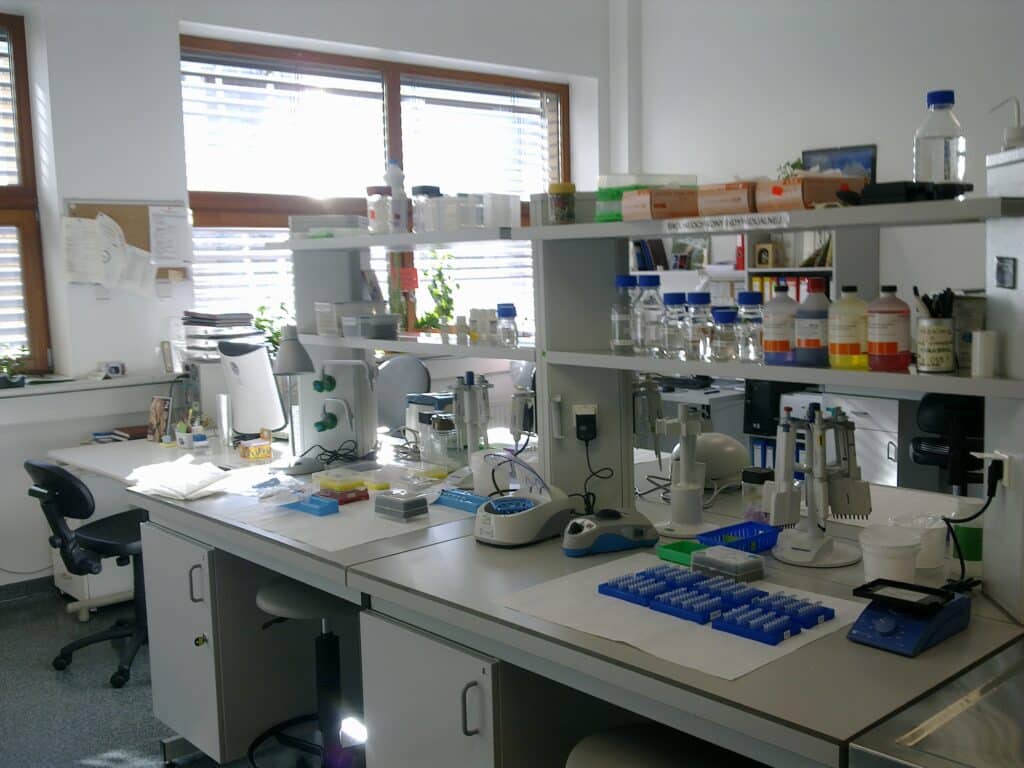
The accuracy and timeliness of test results are essential in a diagnostic laboratory, and uptime is crucial to achieving this. Energy outages, brownouts, and other power disturbances can disrupt laboratory operations, causing equipment failure, data loss, and delays in test results. This can have severe consequences for patients, who rely on the accuracy and timeliness of laboratory test results for diagnosis and treatment.
A battery backup power support system can help prevent these disruptions by providing a reliable battery power source in the event of a power grid failure or other emergency. A UPS infrastructure acts as a bridge between the primary power source and laboratory equipment, ensuring that there is no disruption to the power supply.
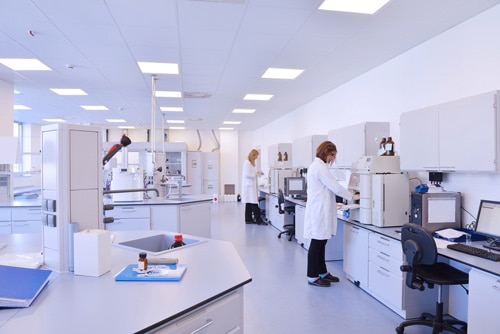
An uninterruptible power supply ensures that critical laboratory equipment remains powered up and operational, allowing laboratory staff to continue processing samples and delivering accurate results to patients. The UPS system also prevents damage to laboratory equipment caused by sudden power loss or voltage spikes, reducing the risk of material failure and data loss.
When selecting a backup battery power support system for a diagnostic laboratory, several factors need to be considered. The size of the laboratory, the number of devices that require battery backup systems, and the required runtime during a energy outage are all essential factors to consider. The UPS backup architecture must have sufficient power to keep all critical utensils operational during a power interruption. Regular maintenance of the UPS apparatus is also necessary to ensure that it remains in good working condition and is ready to provide battery backup when needed.
UPS vs Generator

While both a UPS (Uninterruptible Power Supply) and a generator are capable of providing backup power to lab equipment during power outages, a UPS is the preferred choice for various reasons:
- Reliability- A key factor as battery backup UPS provides instantaneous backup battery power supply, while a generator may take several seconds to start up, leading to sensitive lab equipment shutting down and causing data loss, equipment damage, and workflow disruptions.
- Precision- Lab equipment like spectrophotometers, centrifuges, and PCR machines require precise power regulation. A UPS provides clean, stable power with minimal voltage fluctuations, ensuring equipment operates accurately and consistently. In contrast, a generator may produce voltage and frequency fluctuations that can damage lab equipment.
- Noise- Generators can be noisy and emitt harmful fumes that can endanger lab personnel and the environment. A UPS, on the other hand, operates quietly and without producing emissions, making it an ideal choice for lab environments.
- Maintenance– A UPS requires minimal maintenance compared to a generator, which requires regular fueling, oil changes, and upkeep. Additionally, a UPS has a smaller footprint, requiring less space and fewer resources for installation and operation.
Choosing The Right Battery Backup Power For Your Laboratory
Choosing the right backup battery support system, also known as an uninterruptible power supply (UPS), is crucial for ensuring the smooth and uninterrupted operation of a laboratory and its sensitive equipment. The size of the laboratory, the number of devices that require battery backup, and the required runtime during a service interruption are essential factors that must be taken into consideration when selecting how much power a UPS arrangement should provide.

The size of the laboratory determines the overall power requirements for the uninterruptible power supply system. A larger laboratory will require a UPS scheme with a higher power capacity to provide battery backup to all the essential appliances. Similarly, the number of gadgets that require battery back up also determines the power requirements for the UPS system. It’s essential to identify all the critical devices and ensure that the battery UPS system can provide sufficient power to keep them operational during an electric outage.
The required runtime during a power outage is another crucial factor that should be considered when selecting a backup battery power supply. The runtime refers to the amount of time the UPS system can provide backup power to critical instruments during a power disruption. It’s essential to choose a battery backup UPS order that can provide sufficient runtime to keep all critical facilities operational for a few hours until the primary power source is restored.
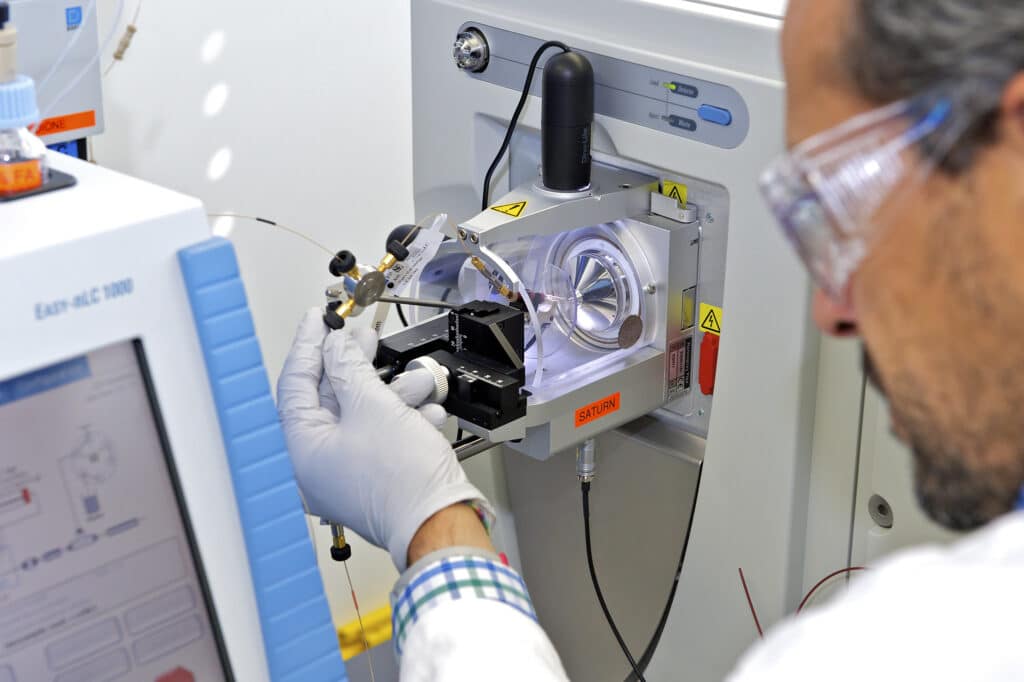
Regular maintenance of the backup battery system is also essential to ensure that it remains in good working order and is ready to provide backup power when needed. Regular maintenance can help identify any issues with the UPS arrangement before they cause a power disruption or equipment failure. Maintenance tasks may include checking the battery life, making sure they are fully charged, ensuring the connections are secure, and testing the system’s functionality.
Key Takeaways

Protecting your samples
Diagnostic laboratories rely heavily on electronic appliances to process and analyze samples quickly and efficiently. These devices require a reliable power source to ensure uninterrupted laboratory operations. A power outage or other disruption can result in equipment failure, data loss, and delays in test results.
Selecting the right size
When selecting a UPS system for a laboratory, it’s essential to consider factors such as the laboratory size, the number of resources that require ups battery backups, and the required runtime during a energy failure. Choosing a UPS complex that can provide sufficient power to keep all critical kits operational during a power outage is critical. Regular maintenance of the UPS platform is also essential to ensure that it remains in good working order and ready to provide backup power when needed.
Protection From Electrical Disturbances
A UPS grid can also help protect laboratory equipment from power surges and other electrical disturbances. The UPS system acts as a buffer between the laboratory equipment and the power source, ensuring that any electrical disturbances are filtered out before reaching the equipment. This helps extend the life of laboratory equipment and reduces the risk of equipment failure.
Protecting Stakeholders
For a rapidly changing diagnostic laboratory environment, the importance of auxiliary power source support cannot be overstated. Investing the cost in a UPS system can help ensure that your laboratory remains operational even in the event of a power outage or other emergency. This can help you deliver accurate test results to patients on time, protect your laboratory revenue, and maintain a positive reputation in the industry.
The field of diagnostic laboratory testing is critical to providing accurate and timely diagnoses for patients across the world. These laboratories rely on electronic devices to process and analyze samples quickly and efficiently, making uninterrupted laboratory operations vital for patient care.
Unfortunately, power outages, brownouts, and other power disturbances can lead to equipment failure, data loss, and delays in test results. This can have severe consequences for patient care, laboratory revenue, and reputation. The importance of standby power supply support cannot be overstated, as it provides a reliable source of battery backup to critical laboratory equipment, ensuring uptime, accuracy, and timely delivery of test results.
How Much Runtime Is Required?
When selecting a reserve power source for your laboratory, several factors should be considered. The size of the laboratory and the number of workstations that require backup power are critical considerations. Additionally, the runtime required during a power outage must be considered to ensure that the UPS system can provide sufficient power to keep all critical devices operational.
Lead Acid or Lithium-ion Batteries?
Another critical consideration when selecting a UPS configuration is the type of battery technology used. The two primary types of batteries used in UPS systems are lead-acid and lithium-ion batteries and they vary based on the following:
- Lead-acid batteries are the traditional choice and are known for their reliability, low cost, and easy maintenance.
- Lithium-ion batteries are becoming increasingly popular due to their longer lifespan, faster recharge times, and higher energy density.
Maintenance
Regular maintenance of the UPS system is also essential to ensure that it remains in good working order and ready to provide backup power when needed. This includes regular testing of the system, battery replacement when necessary, and ensuring that the system is free of dust and debris.
Surge Protection
In addition to installing battery backups, a UPS system can also help protect laboratory tools from power surges and other electrical disturbances than can take several hours to recover from. The UPS system acts as a buffer between the laboratory setup and the power grid, ensuring that any electrical disturbances are filtered out before reaching the equipment. This surge protection helps extend the life of laboratory device and reduces the risk of equipment failure.
In the dynamic landscape, diagnostic laboratory environment, the importance of a secondary backup surge protection cannot be overstated. Investing in a UPS system can help ensure that your laboratory remains operational even in the event of a power outage or other emergency. This can help you deliver accurate test results to patients on time, protect your laboratory revenue, and maintain a positive reputation in the industry.
A reliable emergency power support system is an essential backup component of any diagnostic laboratory. By selecting the right UPS setup for your laboratory and maintaining it regularly, you can mitigate the risks of power outages and other disruptions, ensuring uninterrupted operations and timely delivery of test results.
Choosing the right battery technology, conducting regular maintenance, and protecting laboratory equipment from electrical disturbances are all crucial steps to ensuring the UPS system’s reliability and effectiveness. By investing in a backup battery support system, you can help protect your laboratory’s operations, reputation, and most importantly, patient care.

Contact Us
If you have any questions or inquiries about choosing the right battery backup for your lab, Franek Technologies can provide expert guidance and support. With their extensive knowledge and experience in the field, they can help you assess your lab’s specific needs and recommend the best cost or install solution for your instruments and devices. Franek Technologies can help you make informed decisions that will ensure the safety, reliability, and performance of your lab’s operations. Contact Franek Technologies today to learn more.
